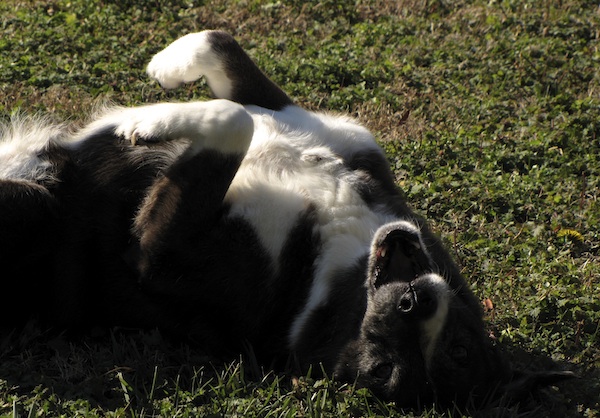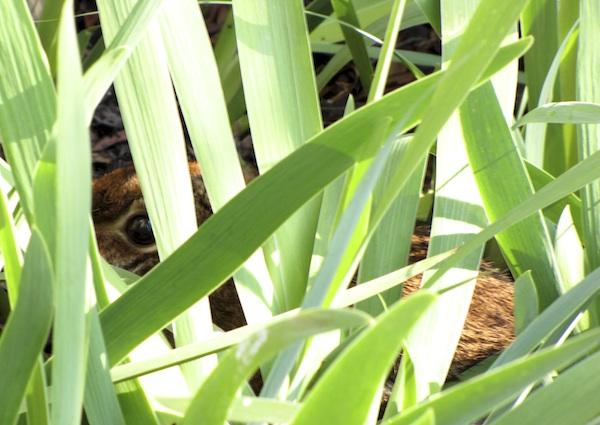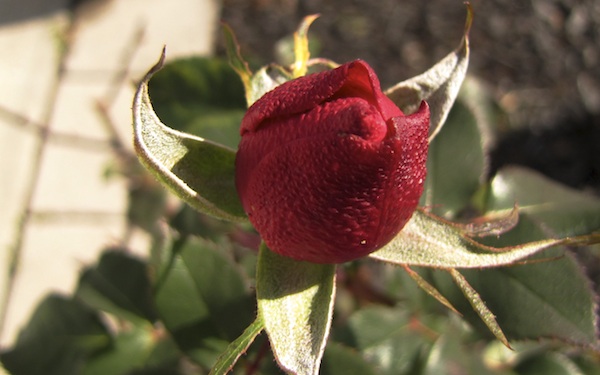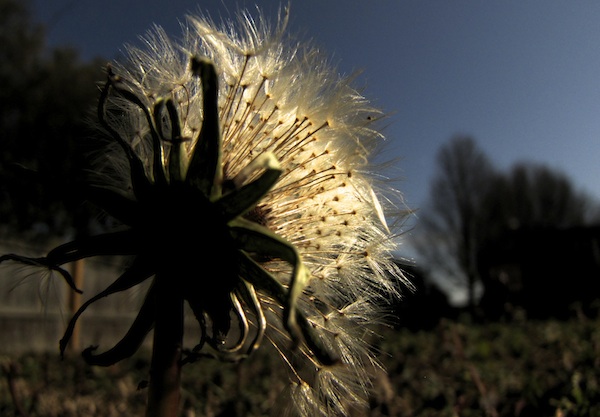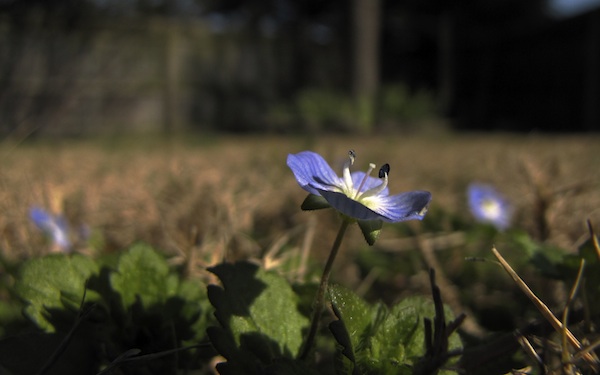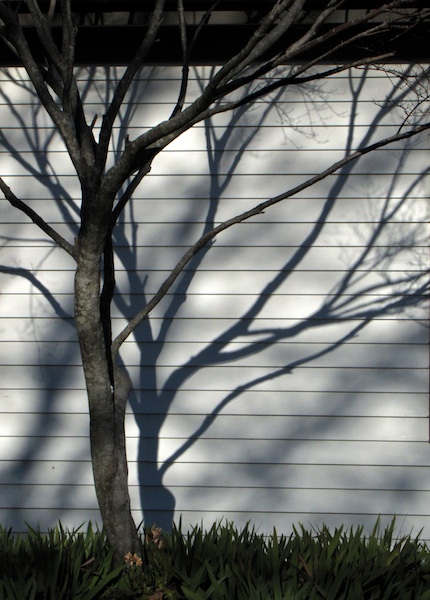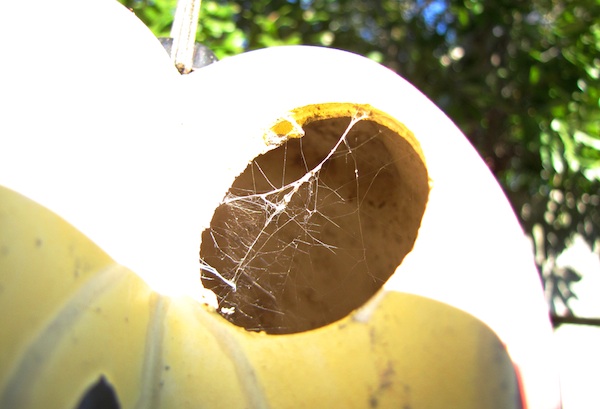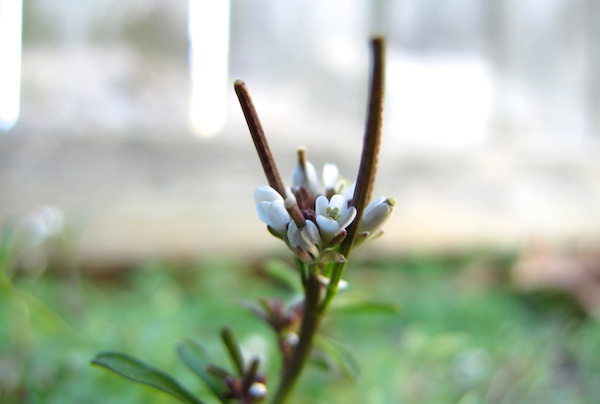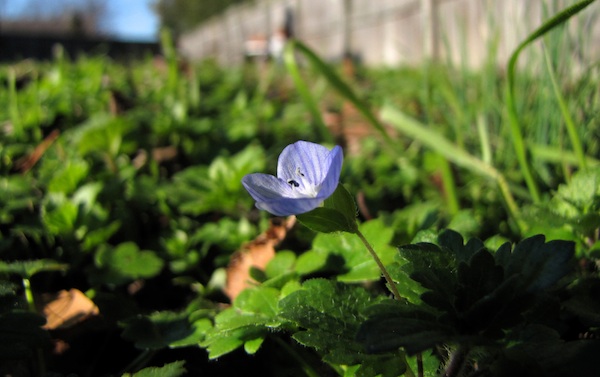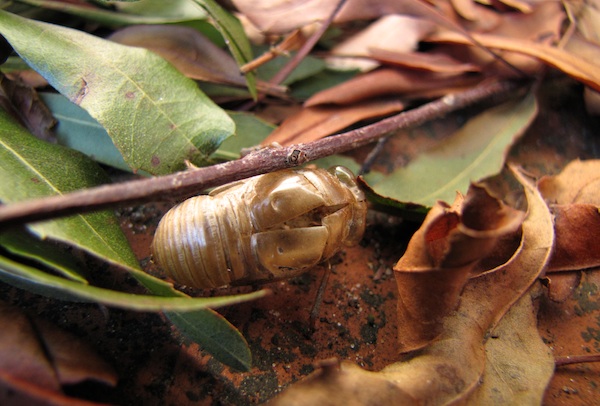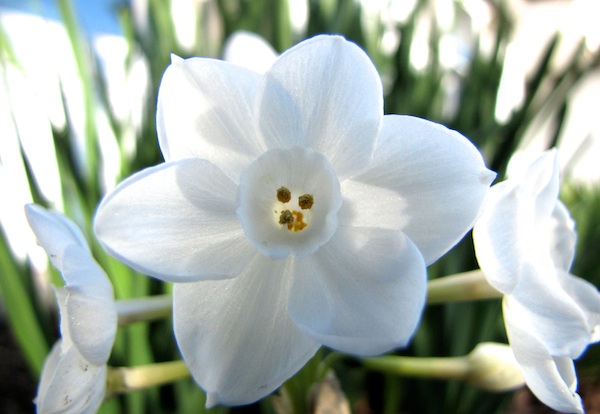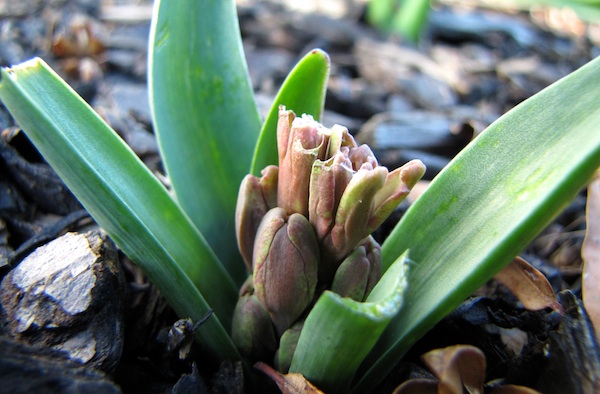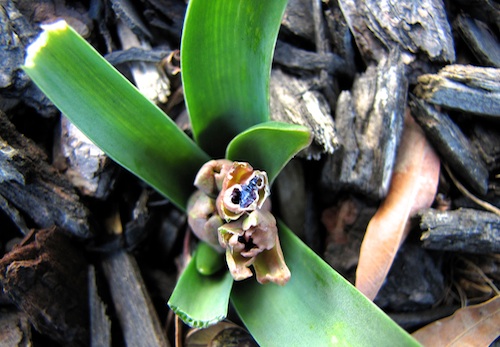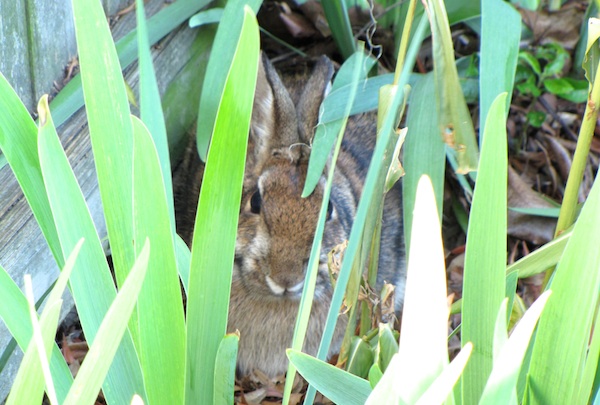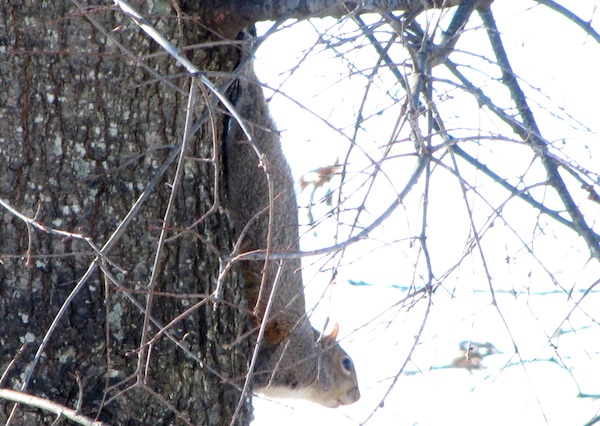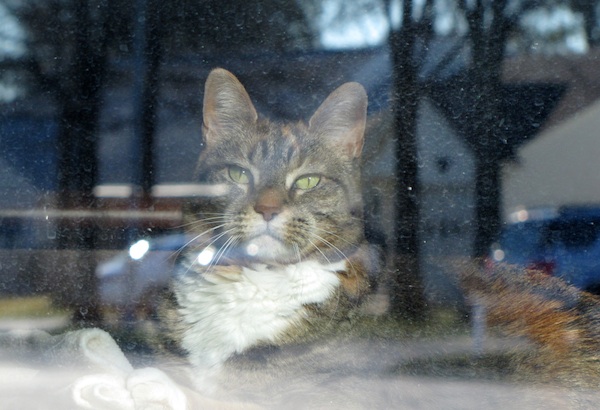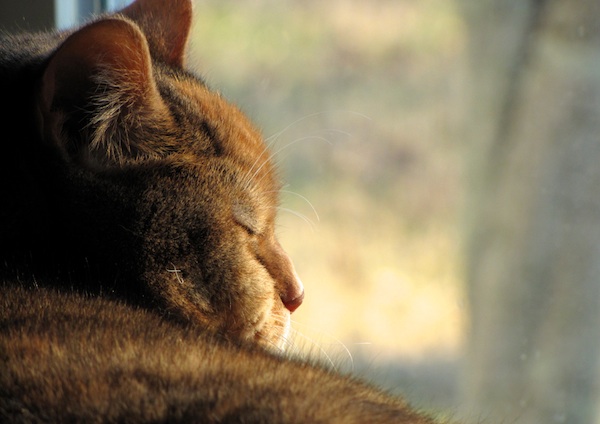I’ve carried this snippet of rhyme my entire life. The rhyme was embossed on a sign in our pediatrician’s office in Huntsville [Alabama], illustrated with two cherubic children, plump and pink-cheeked and aggressively binary.
What are little boys made of? Snakes and snails and puppy dog tails That's what little boys are made of What are little girls made of? Sugar and spice and everything nice That's what little girls are made of
I despised this rhyme. Little boys got all the fun stuff, and I knew, for certain, that sugar and spice and everything nice were NOT what I was made of.1


Commuters in paradise
We moved from Huntsville to Fayetteville, Tennessee, when I was three years old. I have no reliable memories of being a city kid, of the house Chapman Street where my siblings had friends next door and walked to school. My memories are 20-odd patchwork acres of fields, woods, pens, and sheds. There was an old barn and an older house, and, by the time I was old enough for memories, there were animals everywhere.

My memories are also long, diesel-fumed bus rides to and from school, longer drives to the grocery, and longer-yet drives to Huntsville. Because, while our parents moved our household to Tennessee, they never really left Alabama.
The tradition of commuting to Huntsville permeated our life. My oldest brother, 13+ years older than me, finished high school as a commuter student in Huntsville.3 Our father commuted to his bookkeeping and financial analyst jobs for a succession of space industry corporations in Huntsville. We commuted to dog training classes, company picnics, shopping excursions, and dental appointments. And, every time someone got sick, we commuted to the pediatrician’s office.
With five kids spanning the entire realm of K-12, we got sick a lot.

I always arrived at the pediatrician in the grip of fever, nausea, and a miserable headache induced by mother’s perfume, a 1970s favorite called Charlie. (Mother “got dressed” for trips to the pediatrician. Thus, Charlie.) The drive took about forty-five minutes each way, long enough to make me car sick on top of whatever ailment prompted the commute.4
And there, in the pediatrician’s office, were those insipid caricatures of binary gender. The little boys, with permission to own everything fun in the world. And the little girls, who owned only dresses and aprons and recipes.
Have mercy.

Owning too much and too little
Our household was a manifestation of parental dissonance. Mother lived as if entrenched in poverty, while Daddy lived as if money came easy. Both had their reasons.
Daddy worked hard and liked investing in the things he enjoyed. He was a master marksman who bought and sold custom-sighted guns.5 We had aquariums in every room, a citizens’ band radio (CB) in every car, a Pong game, and an Atari. These photos exist because we had cameras, film, and an account with the processing lab. Daddy also collected purebred dogs and carried us to obedience trials, most weekends, so the dogs could earn titles. We had beagles, Shetland sheepdogs, German shepherds, and a collie. My oldest sister had a teacup toy poodle. My middle sister had a Siberian husky.6

Mother worked hard, too, scrimping and saving and stretching each penny thin. She fed us from the garden, chicken house, and pasture: eggs and tomatoes, okra and beans, chickens she killed and cleaned and plucked, beef Daddy carried to the butcher. She also fed us squirrels and rabbits, when Daddy and/or our brothers hunted, and free government cheese and butter. We had two freezers full of ice-crusted mysteries in tin foil and plastic. She sewed the vast majority of our clothes from clearance bolts of fabric and carefully preserved Simplicity patterns, tsking over mentions of name brands and tutting over complaints about uncomfortably tight cuts that saved precious inches of material.
In short, I grew up in a household of competing parental personalities that reinforced the pediatrician’s binary rhyme, surrounded by Daddy’s largesse and Mother’s frugal home-making.
There was a singular exception to the tension. Both of our parents loved books and vinyl albums, so much so that we had shelves and shelves and shelves, in every room. (We went to the library a lot, but also to used book stores and the sale racks at record shops.)

Thereby Hangs a Tale
My favorite album was and still is Eddy Arnold’s Thereby Hangs a Tale. And, when I was in fifth grade, my love for Eddy Arnold sparked a battle with the pediatrician’s rhyme.

My fifth grade teacher decided our classroom theme, for that year’s Harvest Festival, would be Urban Cowboy. A genuine faux honky-tonk. For a small fee, parents and other visitors to the Harvest Festival could admire our straw bale decorations, enter a raffle to win a real calf (which was penned into a corner of the classroom), and enjoy the spectacle of kids in country-and-western costumes lip syncing our favorite songs.

When the theme was introduced, I knew EXACTLY which song I would perform. Eddy Arnold’s version of Ghost Riders in the Sky. Who needs three Christmas ghosts when you can have a herd of the devil’s cows, chased by the Inferno’s cowboys? I knew every nuance of that song, every change of minor key. It was bound to be a crowd pleaser. (If you haven’t heard it, get thee hence to the internet and listen. I’ll wait…)
Back already? Okay, on with my tale…
The combined and somewhat horrified NO! from Mother and my teacher stopped me short. But okay, if they thought the ghost riders were too much horror for the room, how about the location-friendly Tennessee Stud, from the same album? Nope.
No also to Wreck of the Old 97, to Boot Hill and to Nellie Sits A’Waitin’ and to Tom Dooley and to The Red-Headed Stranger. No to all of them. When I finally got around to asking why, I was floored by the answer.
Eddy Arnold’s voice was a man’s voice. I was a girl.
But I wouldn’t actually be singing, so why did the voice matter? Even if I bowed to Mother’s choice and went with Teresa Brewer, surely no one in the audience would think I actually sang like Teresa Brewer? The conversation turned hostile at that point, on all sides. I declared it was Eddy Arnold or nothing. Mother declared it was Teresa Brewer or else. My teacher declared he had better things to do than explain to me what should already be obvious.
I wasn’t even allowed to resign with my dignity intact, to join my classmates who had opted out of performing. Mother knotted me into my sister’s too-small costume and yanked me up hard when I dared complain, again, about the injustice of it all.
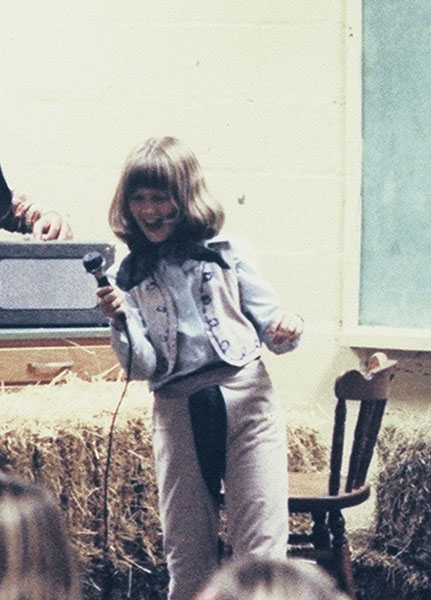
Memories being what they are, this retelling isn’t accurate. But it’s accurate enough, because the memory isn’t the point. The ensuing years are the point, the escalating Mother-Daughter War. All of the mutual disdain and despair over my clothes and my hair and my aspirations and my hard-headed determination to shun the sugar and spice, the everything nice I was meant to embody, in favor of the snakes and snails and puppy dog tails that were reserved for boys.

In the part of me that cherishes Mother’s memory, I sympathize with her quest to pave me a feminine path in the world. In the part of me that still chafes from the strain, I regret the energy she invested in shoving me toward her ideal of feminine, while I defiantly shoved back. It was exhausting for both of us.
All because I was assigned female at birth
When it comes to gender, doctors get to make the call. As Kate Bornstein explains:
In most cultures, we’re assigned a gender at birth–and once you’ve been assigned a gender, that’s what you are and always will be. For the most part, it’s doctors who dole out the gender assignments, which shows you how emphatically gender has been medicalized. These doctors look down at a newly born infant and say, ‘It has a penis, it’s a boy.’ Or they say, ‘It doesn’t have a penis, it’s a girl.’ It has little or nothing to do with vulvas or vaginas, let alone DNA, hormones, or dozens of other nuances of biological sex. It’s all penises or no penises: gender assignment is both phallocentric and genital. Other cultures are not or have not been so rigid.
Kate Bornstein in Gender Outlaw: On Men, Women, and the Rest of Us (Chapter 4, Section 2, paragraph 1)
I was assigned female at birth, and I was pretty much okay with that assignment, on the surface. At least, I didn’t question or resent what being female meant about my body.8 What I questioned and resented were the societal (and maternal) expectations around my gender, the insistence that sugar and spice and everything nice should be all I needed or wanted to be.
Have mercy, indeed.

I wanted to be made of the tracks wildlife left in the woods. Of horses and goats and cows. Of kitten whiskers and, yes, puppy dog tails. Of snakes and salamanders, weeds and creeks, storms and katydids, stories and books. I read Henry and Ribsy and wanted to be Henry. I read The Black Stallion and wanted to be Alex. I read Where the Red Fern Grows and wanted a pair of hounds so badly I could feel their sleek presence in my dreams.


But I also read The Witch of Blackbird Pond (I wanted to be both Kit and Hannah). And Nancy Drew (I wanted to be George). And the Dragonriders of Pern series (I wanted to be both Menolly and Jaxom). An obscure favorite called Horse in the House by William Corbin (I desperately wanted to be Melly). Even Mrs. Frisby and the Rats of NIMH (I wanted to be Izzy) hinted that female didn’t have to mean sugar and spice and everything nice.

And then I got a chance to define myself
As long as we lived in a stable household, the Mother-Daughter Wars slogged on. Even a few years longer, after the household deteriorated into instability and poverty (the exact poverty she had always anticipated, it seemed), battles would flare. Mother continued her siege of demand and reprimand. I continued my resistance of hide and defy. She told me that my sisters, at least, made the effort. She was correct. They did. I didn’t.
I don’t know how our war would have turned out, had the household remained stable. But our father left, remarried, refused to pay alimony, and changed the life insurance to his new wife’s name mere months before he died. I was fifteen when he died, when Mother caved to the grief that had plagued her since Daddy left and told me she was too tired to raise me anymore. If I needed anything, I should ask my older sisters, and if I didn’t need anything I should simply stay out of the way.
I had outlasted the siege. I was free to dash off into the woods in any spare moment, to read as much as I liked (and as late as I liked, tucked tight under as many cats and dogs as could fit on my bed), to cook and sew only well enough to suit myself, and to wear yesterday’s muddy torn clothes to school if I wanted. It was a lonely relief, but at least it was relief.
In fact, my affinity for snakes and snails and puppy dog tails proved useful.
After Mother shook off her grief and began building a new life, she resumed morning pet duty: putting the dogs into their pens each morning, feeding and watering while I dressed for school. Otherwise I took care of the outside pets. The dogs and I, and whatever cats felt like tagging along, went for long rambles each afternoon. I pulled burrs, brushed or cut out all of our matts, plucked ticks, and watched for signs of injuries or illness. I fed and watered each evening and escorted the dogs to their assigned crates at night. I chased the goats off of the cars and back into their pen, when they broke out or were released for an afternoon, and watched over deliveries of the twin and triplet baby goats that arrived each spring. I emptied and refilled the wading pools that our ducks and geese fouled each day.
Because I was outside anyway, I stacked wood and mowed the yard and helped my oldest sister in the garden. Wielding an old slingblade, I beat back tangles of honeysuckle and stands of ragweed that encroached on the yard. I carried snakes away from the porch, climbed the roof to clean the chimney, and braved the spidery attic to fetch and re-stash boxes. I liked best the dirty jobs, and Mother was content to let me do them. It turns out that, when there’s no man about, girls might need to be more than sugar and spice and everything nice.

Between fifteen and twenty-three, I reveled in the freedom I had gained through loss. I graduated high school, and, when I gained control of my own bank account (where Mother had deposited every 4-H prize check I had ever earned) at age 18, I emptied the account to buy a $600 car from my oldest sister’s boyfriend. My middle sister gave me a few unenthusiastic driving lessons, and suddenly I could get myself back and forth to everywhere without begging a ride from sisters and friends. I talked the local veterinarian into hiring me, worked two additional part-time jobs, and did well enough in college to keep the full scholarship I had earned with high standardized test scores. (My test scores did not reflect any particular proficiency or aptitude. I simply had a knack for standardized tests, which played to my strengths of reading, creative puzzle solving in quiet rooms, and informed guesswork when encountering the unknown.)
Year by year, I grew up and moved on. When I finished my bachelor’s degree in biology, I faced a happy pair of choices: should I pursue my snakes and snails onto a biology research path, or should I follow the puppy dog tails into veterinary school? I chose the puppy dog tails. (I won’t claim to have never regretted that choice. Regret is one of my lifelong habits.)
The rhyme stayed with me
I lived in a dorm over the university veterinary clinics, in Knoxville, where I stayed too busy to stew over a childhood rhyme. But the rhyme still surfaced occasionally. Particularly when The Spice Girls were popular. Which was about the same time that I met my rescue tabby, Spice.

The older I got, the less I pondered that rhyme on the pediatrician’s wall. Until recent years. Now I find almost daily reminders of the Mother-Daughter War, of my escape through loss from Mother’s version of female tradition. Of my bittersweet dash away from the siege, toward a future filled with snakes and snails and puppy dog tails.
What if I was a kid again, today? That same kid? Would I be able to make the same escape? I worry that my escape was a fluke, a privileged path through a brief convergence of opportunities.9 I worry the future is closing, not opening. Especially for kids who experience a deeper unease, who yearn not just for the other side of the rhyme, but an altogether different definition of gender. I never questioned or resented the gender a delivery room obstetrician assigned me at birth. But what of the kids who did and do?
My memories should stand as old-fashioned artifacts of bygone times. Instead, new generations are experiencing new traumas, inflicted by the polarizing lenses of binary, cisgender ideologies.
What is the deal with gender, anyway?
I’ve yet to find a satisfactory definition of gender. I’m drawn to a quote by Ian Hacking, which wasn’t meant to address gender but seems to fit. Hacking’s words strike a particularly interesting chord, for me, when paired with a quote about capitalism:
High-level semantical words like ‘fact,’ ‘real,’ ‘true,’ and ‘knowledge’ are tricky. Their definitions, being prone to vicious circles, embarrass the makers of dictionaries. These words work at a different level from that of words for ideas or words for objects. For brevity I have called them elevator words. They are used to say something about what we say about the world. Facts, truths, knowledge, and reality are not in the world like protozoa, or being in love. Philosophers keep on fussing with them.
Ian Hacking in The Social Construction of What? (p. 80)
Social theory is often likened to lenses of various cuts that enable us to discern patterns in human action. When the lenses are cut solely to confirm one’s faith and denounce whatever opposes it, the resulting vision is strictly ideological. Such lenses, commonly worn in politics and public debating, function more like blinders.
Immanuel Wallerstein, Randall Collins, Michael Mann, Georgi Derluguian, and Craig Calhoun in “Getting Real”, the collective conclusion to Does Capitalism Have a Future?
While my experiences and expectations regarding the word gender continue to grow and change, while I claw at my own blinders, I’ve settled into a tentative personal understanding along these lines:
- If gender is a genuine trait (that’s a big if), then
- it must follow that gender varies, because all traits vary, and
- these variations should manifest between a set of extremes
- with the vast majority of individuals situated between, rather than at, the extremes.
If gender is a “real” trait, or even a socially constructed one, my experience shouldn’t be unique. In fact, I should be one of the majority who experience our binary-constrained society somewhere between the extremes. And I believe this is the case. I’m clearly not the only girl who despised that dratted rhyme, who dreaded a lifetime of sugar and spice while yearning for snakes and snails. (Nor am I the only girl released from her Mother-Daughter War by household trauma.) None of these constraints were, or are, necessary. A world of binary gender expectations isn’t necessary.
Which is why I wrote this long blog post
It’s worth repeating: My memories should stand as old-fashioned artifacts of bygone times. Instead, new generations are experiencing new traumas, inflicted by the polarizing lenses of binary, cisgender ideologies.
Let me be clear, my years in the Mother-Daughter War are petty spats compared to the abuses endured by many cis women, trans women, and non-binary people. I do not wish to usurp the stories of feminist, trans, and non-binary activists, nor draw attention away from their long struggle. I’ve benefitted from the work of feminist activists, in particular, and I’m grateful. I’ve learned from trans and non-binary advocates and activists, and I’m grateful. I owe my education(s) and career(s) to those who have done the heavy work of changing the world. I’m grateful.
I’m not equipped, emotionally, for a life of activism. But I have a small platform, a great deal of unearned privilege, and a history that seems pertinent to the moment. So I wrote this long blog post. I wrote with the hope that my story might help some mother, somewhere, call a cease-fire in her own Mother-Daughter War and decide, instead, to explore the beautiful territories and rich opportunities between the binaries.


Notes
1. Please don’t read this to mean that I harbor any resentment against children and adults who are made of sugar and spice and everything nice. I grew up with several wonderfully contented sugar and spice and everything nice people, and I’ve met more as an adult. I simply knew, from my earliest knowing, that I was more of a snakes and snails and puppy dog tails kind of person. (click here to return)
2. This photo dates from a mid-elementary-school age. As it was clearly summer, Mother had slackened some of her standards regarding my hair, which is tousled in odd lengths as it recovers from one of the short haircuts. As for the striped halter top and yellow shorts, I inherited some dozen of each as hand-me-downs from my older sisters. Mother sewed them in bulk. (click here to return)
3. Later, my sisters and I commuted to our undergraduate degrees from the University of Alabama in Huntsville. I even continued the tradition, for a few years, after moving to Knoxville for veterinary school. Whenever I had a non-working weekend, I commuted four hours “home” to mow the yard or stack wood or mend fences or simply wander the fields and woods until it was time to drive four hours back. The years after I ceased commuting, when I declared somewhere else home, were fraught. Mother resisted and resented my decision to make only infrequent visits. She complained about having to pay someone to mow, about the expense of central heating with no one to stack the wood, and about loneliness. Loneliness, I now understand, was the real issue. I was the youngest child and the last to leave, so I was the one who left her alone. Our mutual insistence on misunderstanding each other’s motivations eventually led to a decade-long breach that never quite healed. (Readers might sense, here, an unhealthy dose of mother-daughter strain. It’s a common enough family dynamic. Read on for more.) (click here to return)
4. Mother probably detested the drive as much as I did, though not enough to transfer our care to one of the family doctors in Fayetteville. And her hard-and-fast rule held that if I was sick enough to miss school (with an undeniable fever and/or vomiting, which were the only acceptable excuses) I was sick enough to see the doctor. (click here to return)
5. Daddy also saved spent brass and reloaded it himself. (click here to return)
6. I was nearing old enough, deemed to be 11 years old for me, when our parents’ marriage fell apart. Daddy had even shopped a bit, with me, for dalmatian puppies. I had read the book at least 101 times. (click here to return)
7. Daddy purchased BJ from a “show quality” litter. I suppose the dream was to expand into the conformation side of AKC shows. To finish a championship and, perhaps, to establish a lineage of champions. (Our father often dreamed big.) But BJ stopped growing just short of breed standard height. He was undersized, a career-ending flaw. Daddy entered him a few times, anyway, bluffing toward standard height with floofy grooming techniques. They even earned a few ribbons and points. But finishing a championship was never a realistic goal. Besides being undersized, BJ was a snappy fellow (stop judging!). He failed many a temperament test, never thrived in the obedience ring, and lived out his life as a grumpy little ornament on our untidy acres. He was Daddy’s dog, but I loved him and he loved me back and we spent many afternoons exploring together. (Especially after Daddy left.) Then many uncomfortable evenings pulling tangles and burrs from our hair. (click here to return)
8. Except that I feared all the ways that my uterus could and did destabilize my life. I’m bookmarking this thought, here, in hopes of expanding it into a separate post, later. (click here to return)
9. I don’t mean to overlook the bizarre irony of seeing my father’s desertion and death, my mother’s exhaustion and grief, as opportunity. There’s a profound dysfunction in my perception of these memories that mirrors the various dysfunctions our family navigated, during those years. (click here to return)
References
Bornstein, K. (2016). Gender outlaw: On men, women, and the rest of us. (2nd edition, Kindle edition). Vintage Books.
Hacking, I. (1999). The social construction of what? (3rd printing). Harvard University Press.
Wallerstein, I., Collins, R., Mann, M., Derluguian, G., & Calhoun, C. (2013). Does capitalism have a future? (Kindle edition). Oxford University Press.
I have been saving links to essays and stories more interesting and more important than my musings, but this post is already too long. If you’ve stayed and read to the end, I very much appreciate your attention and time. I’ll add the links to a later (shorter) post.





























